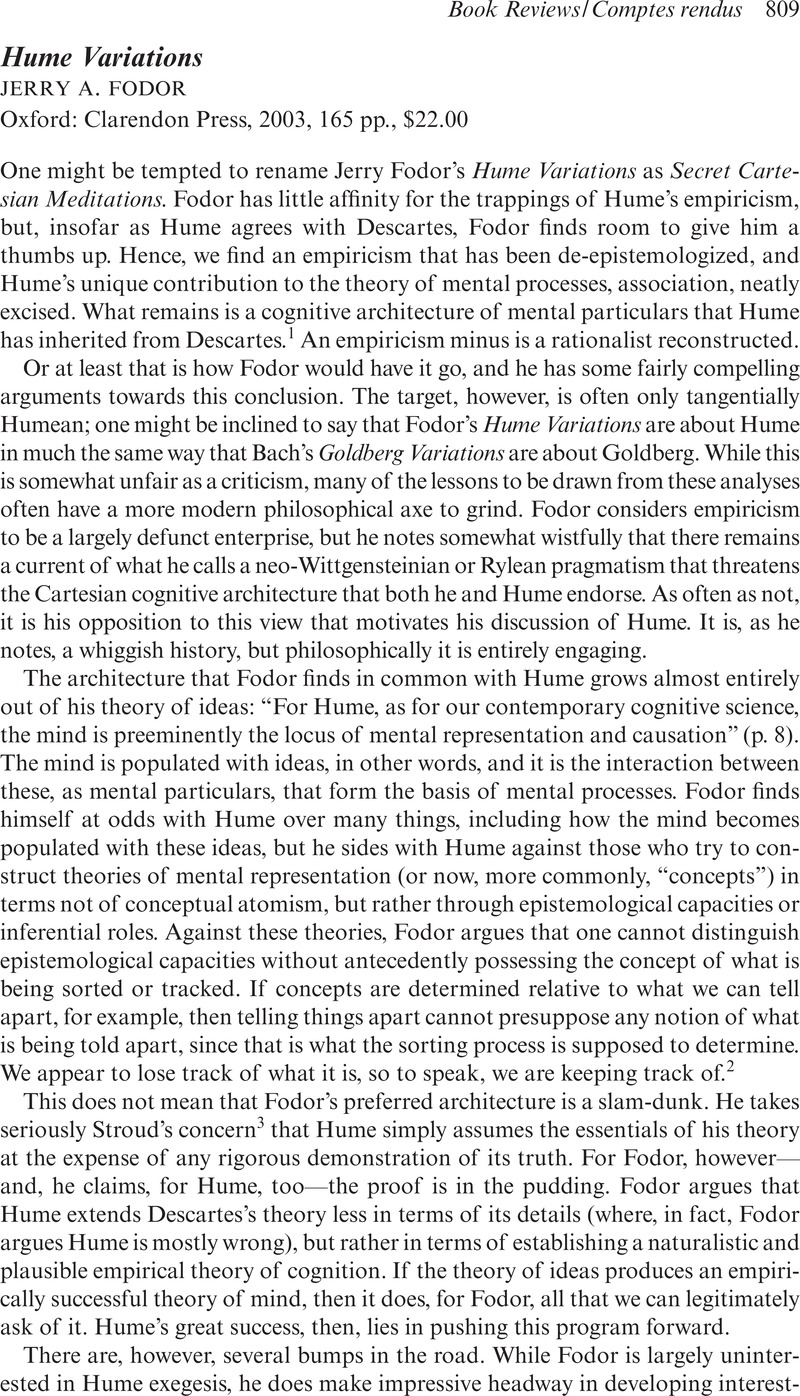No CrossRef data available.
Published online by Cambridge University Press: 27 April 2009

1 As Fodor puts it, “Hume's cognitive science is a footnote to Descartes's, and ours is a footnote to his” (p. 8).
2 Fodor also claims that we cannot generate a fully intentional account of cognition from epistemic capacities. Extensions cannot, he argues, suffice for intensions. See pp. 24–26.
3 See Stroud, Barry, Hume (London: Routledge, 1977).CrossRefGoogle Scholar
4 See, for example, Barsalou, Lawrence, “Perceptual Symbol Systems,” Behavioral and Brain Sciences, 22 (1999): 577–609Google ScholarPubMed, and Prinz, Jesse, Furnishing the Mind (Cambridge, MA: Bradford Books, 2002).Google Scholar
5 See Fodor, J. A., RePresentations: Philosophical Essays on the Foundations of Cognitive Science (Brighton: Harvester Press, 1981).Google Scholar
6 See, for example, Baillargeon, Rene, “How Do Infants Learn about the Physical World?” Current Directions in Psychological Science, 3 (1994): 133–40CrossRefGoogle Scholar; Leslie, Alan and Keeble, S., “Do Six-Month-Old Infants Perceive Causality?” Cognition, 25 (1987): 265–88CrossRefGoogle ScholarPubMed; and Spelke, Elizabeth, “Principles of Object Perception,” Cognitive Science, 14 (1990): 29–56.CrossRefGoogle Scholar